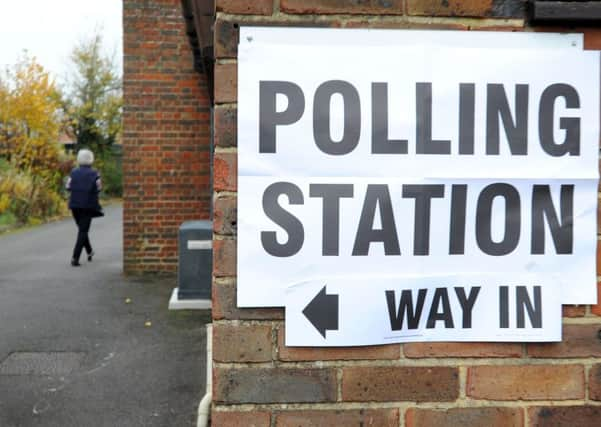Number of Mid Sussex voters without ID turned away at May’s election revealed


The area was one of ten taking part in a Government pilot looking to reduce the risk of voter fraud.
In Mid Sussex voters were asked to test using poll cards as a means of identification.
Advertisement
Hide AdAdvertisement
Hide AdFigures from the Electoral Commission show that 1,968 people were initially refused a ballot paper across the ten trial areas for not having the right ID, but more than half later returned to vote.
Mid Sussex had by far the lowest number of voters refused a ballot paper at just 15, with only eight not returning with the correct ID.
In Mid Sussex, voters could show either their poll card or a specified form of photo ID.
More than nine out of every ten people, 94.4 per cent, used their poll card at the polling station, with the remainder using photographic identification.
Advertisement
Hide AdAdvertisement
Hide AdOf the people the Electoral Commission spoke to 36 per cent had seen or heard something about the pilot, 79 per cent knew they would have to take a form of ID to the polling station and 92 per cent thought it would be easy to do at future elections.
However just 48 per cent of respondents would be more confident in the security of the election if photo ID was required in the future.
Meanwhile of the electoral administration staff the commission spoke to 95 per cent felt instructions on acceptable forms of ID were clear, 72 per cent had no problems checking ID and 79 per cent were very confident this could be replicated at another election.
Tom Clark, Mid Sussex District Council’s returning officer, said “We were very pleased with the results of our public awareness campaign. This far reaching campaign resulted in Mid Sussex having the highest percentage of people being able to vote in person out of all 11 authorities involved in the voter ID pilot.
Advertisement
Hide AdAdvertisement
Hide Ad“The hard work of our elections and communications teams resulted in 99.97 per cent of those who attended polling stations being able to vote. This along with a cost of the campaign, fully funded by the Cabinet Office, being significantly less than any other authority taking part in the pilot feels like a job well done.”
The Electoral Reform Society (ERS) has highlighted Electoral Commission figures showing just eight allegations of personation fraud in the whole of the UK out of millions of votes cast, suggesting the number of people denied a vote in the pilot areas outnumbers the scale of alleged voter fraud across the country by a factor of almost 100.
Jess Garland, director of policy and research at the ERS, said: “These official figures pose a stark warning about the government’s undemocratic push for mandatory voter ID. It is clear that, once again, the number of people denied their rightful vote far outstrips the levels of impersonation at the ballot box.
“Mandatory voter ID poses an unprecedented risk to democratic access and equality. Millions lack the required forms of identification and these plans, if rolled out nationwide, could see tens of thousands of legitimate voters lose their voice.
Advertisement
Hide AdAdvertisement
Hide Ad“Trust in our democratic system is vital – which is why ministerial scaremongering about fraud is especially dangerous.
“Ministers must now focus on combating the real threats to our democracy – rather than suppressing voters’ rights.”
Mid Sussex District Council has been approached for comment.